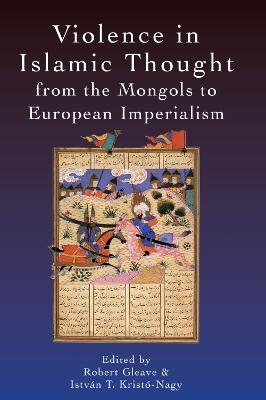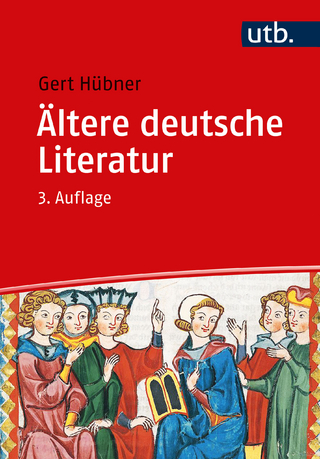
Violence in Islamic Thought from the Mongols to European Imperialism
Seiten
2018
Edinburgh University Press (Verlag)
978-1-4744-1300-8 (ISBN)
Edinburgh University Press (Verlag)
978-1-4744-1300-8 (ISBN)
This book examines how violent acts were assessed by Muslim intellectuals, analysing both changes and continuity within Islamic thought over time.
The violent conquest of the eastern part of the lands under Muslim rule by the Mongols marked a new period in the history of Islamic civilisation and in attitudes towards violence. This volume examines the various intellectual and cultural reactions of Muslim thinkers to these events, both within and without the territories subjected to Mongol control. Each chapter examines how violent acts were assessed by Muslim intellectuals, analysing both changes and continuity within Islamic thought over time.
Each chapter is structured around a case study in which violent acts are justified or condemned, revealing the variety of attitudes to violence in the medieval period. They are framed by a detailed introduction, focusing on theoretical perspectives on violence and religion and their application, or otherwise, to medieval Islam.
The violent conquest of the eastern part of the lands under Muslim rule by the Mongols marked a new period in the history of Islamic civilisation and in attitudes towards violence. This volume examines the various intellectual and cultural reactions of Muslim thinkers to these events, both within and without the territories subjected to Mongol control. Each chapter examines how violent acts were assessed by Muslim intellectuals, analysing both changes and continuity within Islamic thought over time.
Each chapter is structured around a case study in which violent acts are justified or condemned, revealing the variety of attitudes to violence in the medieval period. They are framed by a detailed introduction, focusing on theoretical perspectives on violence and religion and their application, or otherwise, to medieval Islam.
Robert Gleave was Director of the Legitimate and Illegitimate Violence Project 2010-2013, and is Professor of Arabic Studies at the University of Exeter. He specializes in Islamic legal theory (usul al-fiqh) and Shi'i legal thought. His most recent publications include Islam and Literalism: Literal Meaning and Interpretation in Islamic Legal Theory (EUP, 2012) Istvan Kristo-Nagy is a Lecturer in Arab and Islamic Studies at the University of Exeter. He is the author of La pensee d'Ibn al-Muqaffa' (2013).
| Erscheinungsdatum | 14.06.2017 |
|---|---|
| Reihe/Serie | Legitimate and Illegitimate Violence in Islamic Thought |
| Zusatzinfo | 15 B/W illustrations |
| Verlagsort | Edinburgh |
| Sprache | englisch |
| Maße | 156 x 234 mm |
| Themenwelt | Geschichte ► Allgemeine Geschichte ► Mittelalter |
| Geschichte ► Allgemeine Geschichte ► Neuzeit (bis 1918) | |
| Geisteswissenschaften ► Geschichte ► Regional- / Ländergeschichte | |
| Geschichte ► Teilgebiete der Geschichte ► Kulturgeschichte | |
| Sozialwissenschaften ► Soziologie | |
| ISBN-10 | 1-4744-1300-5 / 1474413005 |
| ISBN-13 | 978-1-4744-1300-8 / 9781474413008 |
| Zustand | Neuware |
| Haben Sie eine Frage zum Produkt? |
Mehr entdecken
aus dem Bereich
aus dem Bereich
eine neue Geschichte des Mittelalters
Buch | Hardcover (2023)
C.H.Beck (Verlag)
38,00 €


